
OUR STORY
Our mission is to disrupt the flow of vulnerable girls & boys, men & women trafficked for exploitation, both internationally and within Ghana.
Being held in a basement flat for four years, forced to work as an unpaid prostitute is not the image young girls and women envision when they are lured away from their villages and cities. The push factors of poverty, being less educated, familial breakdown and greed are set against the pull of money, glamour and status that women are promised they can obtain.
The profile of Ghanaian victims of human trafficking is complex, affecting girls and boys, women and men from a broad range of ages, familial & cultural backgrounds and economic circumstances. The ECOWAS agreement and easily obtainable visas for Gulf states have facilitated a rise in external trafficking. The push factors of poverty, being less educated, familial breakdown and greed are set against the pull of money, glamour and status. Our mission is to disrupt the flow of vulnerable girls & boys, men & women trafficked for exploitation, both internationally and within Ghana.
The Hope Education Project program combines classroom instruction with hands-on learning through participatory theatre. Targeting JHS1 and JHS2 students, the program is delivered in three modules. During these modules, students work towards creating a play, which they produce in the fourth module. The students then present the play to their peers within the school. The play forms the core of the Community Module for the parents and the school community, putting the students at the centre of the knowledge transfer.
HEP’s vision is to launch a pilot project in October 2024 in Tamale, Northern Region. Once proven successful, this project can be scaled throughout the country and eventually into West Africa. Ghana is an ideal pilot location due to its safety and freedom of movement. Crucially, we are motivated by the integrated approach between NGOs and the government, as the government acknowledges the problem and seeks to extend the work of NGOs.
BBC News
BBC Victoria Derbyshire
Arise News Nigeria

our story began in dubai

Young girls and women are trafficked to work in the clubs and hotels of Dubai –facing severe punishment if they refuse to have unprotected sex. Living in appalling conditions they are fed a meagre breakfast and resort to begging for food on the streets. Many suffer severe physical injuries as a result of the work and punishments; some are infected with the HIV virus and other STDs.
After rescuing and repatriating the woman, Angus was interviewed by the BBC. That coverage enabled him to crowdfund the project and set about successfully saving the other 22 victims. The project revealed a complex web of deception and corruption: from the pastors, friends and relations recruiting young women, to corrupt border, consular and police officials assisting the traffickers. The media scrutiny and subsequent rescue missions resulted in a number of criminal prosecutions being taken up by NAPTIP in Nigeria. It soon became apparent there was a significant stream of West African victims trafficked to Dubai and that the problem had to be tackled at the source.
The purpose of The Hope Education Project is to educate and raise awareness among vulnerable Ghanaians about human trafficking. HEP will be working at the source with the launch of a pilot project in Tamale, Northern Region, Ghana. By educating potential victims, educators and community leaders we aspire to raise awareness, engage survivors and shape policy. The project will be specific in its focus and set the standard for a sustainable and replicable human trafficking education and awareness program.
In November and December 2023, Stop Trafficking Africa held an immersive human trafficking exhibition in Soho, London. The exhibition was opened by Dr Fatima Waziri-Azi, Director General of the National Agency for the Prohibition of Trafficking in Persons (NAPTIP), Nigeria.
The centrepiece of the exhibition was a video featuring compelling testimony from survivors of sex trafficking to Dubai, United Arab Emirates. The video, shot in London, Lagos Warri and Abuja, featured Dr Fatima Waziri-Azi, together with STA founder, Angus Thomas. With over 5m views across all formats, the video is now used in training and education programs around the world.

